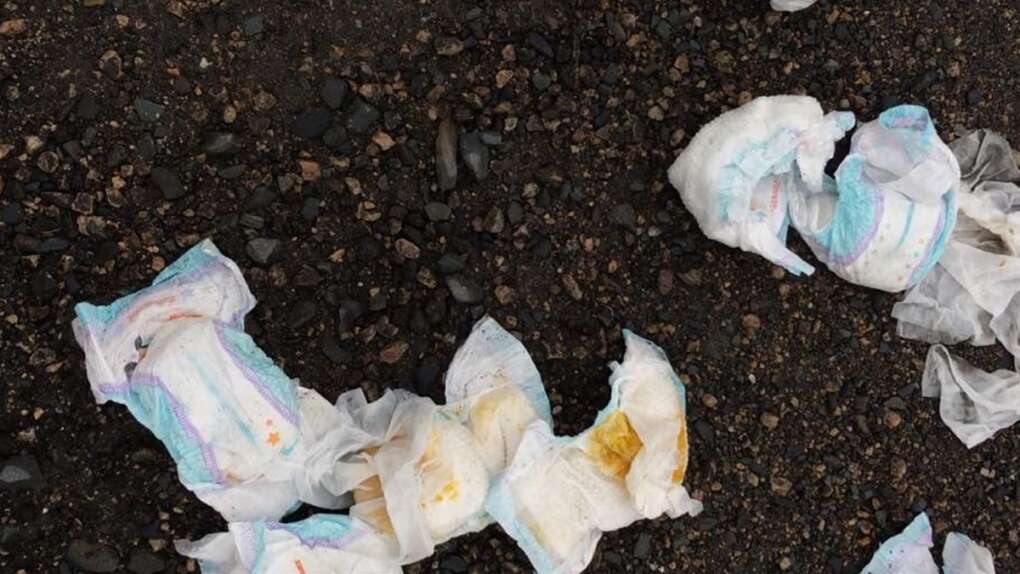Reckless diaper dumping stains Malawi
The indiscriminate dumping of baby diapers in Malawi’s townships and cities continue to be on an upward spiral unabated.
Of late some reckless mothers have been dumping used diapers in rivers, streams and streets posing, environmental dangers to the end users of such water sources.

While some mothers look at the use of diapers as easy and friendly hence clinging to them, other people are of the view that people have become reckless with how they are being used, more especially on disposal.
Others are even suggesting banning the sale of baby pampers to restore sanity in Malawi’s towns and cities.
“It looks like people are no longer responsible enough in taking care of the used baby pampers as they keep dumping them carelessly. If I had powers I would ban them or recommend stringent usage on those that use and dump them recklessly,” says Bosco Kaunda.
Kaunda, 29, is a businessman in Mzimba and stays alone at Mabuchi, one of the townships in Mzimba.
“I normally leave early for my kaunjika selling business which I do at Mzimba Boma. One day when coming from my business, I found a pile of dumped baby pampers on the veranda of my house with flies all over. It was a disgusting scene,” he says.
Apparently, dogs had scavenged the place where some mother had dumped them and had taken them back into the household.
Kaunda’s experience with dumped diapers is not an isolated case.
In most of Malawi’s townships and cities some mothers dump them along some roads and others under bridges apparently due to lack of know-how on how to dispose of them.
The dumping of baby pampers has made township an eyesore. The sight of used baby pampers being dumped willy-nilly has brought into perspective the type of mothers we have today.
“The dogs, in search of foods in the neighbourhoods feast on these dumped baby pampers where ever they are dumped and take them back into our homes. It makes environment bad and smelly,” says Kaunda.
Kaunda says these dumped pampers could be vectors of some diseases. The dumped pampers attracts all sorts of flies and some of these vectors could spread diseases such as cholera.
A 65-year-old mother of seven, Letinayi Banda, says she has raised kids using napkins and she found the current practice of using baby diapers much friendly. The only pullback factor, she says, is the inappropriate way some women are disposing of them.
“In our time, napkins were the order of the day. But in comparison I find these baby diapers easy to use. I only feel disgusted at the way some modern mothers handle such used diapers by not disposing them meticulously. Appropriate way would be burying or burning them,” she says.
A businessman at Mzimba Boma Gerald M’balaka says for most modern mothers they give him good business.
“I sell these diapers a lot. My biggest customers are younger mothers. I think these new mothers find it easy to use diapers than napkins. I have sold napkins before but I don’t even remember when I sold one recently. But for baby pampers, every day I sell more than twelve,” he says.
Mzimba District Hospital public relations officer Ellings Nyirenda admits the practice some women dump used diapers and describes the behaviour as bad.
“This week we are meeting influential leaders in Mzimba on cholera prevention. We will highlight that poor hygiene contribute spread of diseases. Used dumped diapers can contribute to spread of diseases such as cholera,” he says.
Environmental rights activist Mathews Malata is livid with rage at the boom in the number of used diapers which he says poses threat to the environment and health of people.
“We need to do more awareness on the dangers of disposing of these diapers wantonly targeting households, obviously looking at parents; both women and men. The temptation is high to only focus on women but we must also target men because they are equally responsible.
“We should also target caregivers with same messages. We must try to sensitive them on best way of disposing diapers. Most of such diapers contain plastic element different from the recycled ones. Most Malawians are using disposable diapers but best are recycled ones,” Malata says.
He says there are both environmental and health risks associated with indiscriminate dumping of these used diapers including pollution of water bodies but also looking at the issue of polluting underground water because there is a mixture of faecal matter and urine.
Malata also says there are health risks when people dump wastes recklessly. He believes even the current wave of cholera could be linked to such dumping of things such as diapers.
Moving forward, Malata says government should come up with guidelines that can demonstrate how people can safely dispose of the used diapers.
Malata proposes government should do massive awareness targeting everyone.
“Otherwise it’s a big problem at the moment and if we do not address it right now I think we will be in a big mess and it will be hard to get back. If it is bringing problems then it means we can’t handle it and if we can’t handle it we don’t need it. ’’, says Malata.
Malata adds that banning of sale and use of diapers in Malawi could be an option but he says as a country we must be careful to consider other options first. He says the boom in the number of dumped diapers is a mess we must collectively accept.
Mzimba-based mother, Ellen Moyo, 26, says she finds it easier to use baby diapers but she admits finding challenges on how to dispose of them.
“Our landlord warned us against dumping them in our toilet fearing it may lead to the toilet becoming full sooner. If we are to burn them we need to buy diesel. We find all those challenging and that is why we sometimes just dump used diapers under bridges,” she says.





